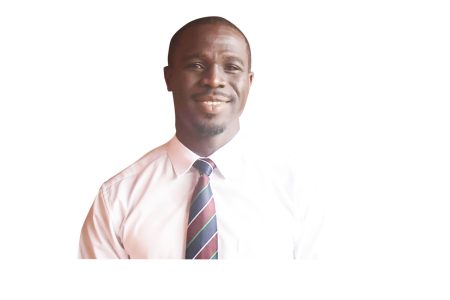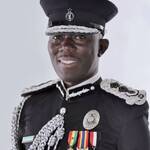Mr. Bismark Kwame Tunu, a Chemistry teacher at the Opoku Ware Senior High School in Ghana, has won the African Union’s Continental Best Teacher Award.
Seven other outstanding teachers from Kenya, Mauritania, Malawi, Mauritius, Morocco, Nigeria, and South Africa also won awards.
Best Teacher Awards are a great way to recognize outstanding teachers.
The awards can raise the appreciation of teachers in society while demonstrating that hard work and innovation can make a difference for learners.
The African Union Commission instituted the Continental Best Teacher Award in 2019. Winners receive cash gifts and are celebrated.
As argued by UNESCO International Institute for Capacity Building in Africa (IICBA) in a report led by Steve Nwokeocha and Aminata Sessay in the IICBA Studies series entitled “West Africa – Investing in Teachers and School Leaders: Professional Standards, Teacher Education, and Working Conditions,” teacher awards are important to celebrate the unique contribution that teachers make to their students, their communities, and societies.
In an interview with IICBA, Mr. Tunu was asked what motivated him to be a teacher.
He answered: “I have seven years of imparting knowledge as a professional teacher. My love for teaching started when I was nine years old when my mom who is a teacher explained the purpose of a marking scheme to me.
“I love to lead group discussions on challenging concepts. During my mandatory national service, I was posted to South Suntreso Government Hospital in Kumasi as an intern biomedical scientist, but I took up the task to explain the concepts and principles of the various tests to students who came on attachment.
This helped bridge the gap between what was taught in school and how to link this practically in the laboratory.
“I decided to join the profession I so much admire just before I finished my post-graduate studies. So, I sat for a recruitment examination conducted by Ghana Education Service in 2016, passed the exams and was posted to Nsawkaw State SHS where I started teaching. I have enjoyed teaching ever since.”
Teaching is a demanding profession. It is also one of the most important professions for societies’ development. In economic terms, the changing wealth of a nation is the set of assets that enables it to produce future income.
At the World Bank, this wealth can be measured as the sum of natural capital (such as oil, forests, or land), produced capital (investments in roads, factories, etc.), and human capital (the value today of the future earnings of the labor force), plus a residual category called net foreign assets. Globally, human capital wealth, i.e., people account for two thirds of wealth, a much larger share than natural and produced capital.
In Ghana, the share is a bit lower, at 56 percent, but this is still the largest source of the country’s wealth. In turn, education accounts for a large share of human capital wealth.
Investing in education is one of the best investments that countries can make.
But for investments in education to bear fruit, we need great teachers. Unfortunately, globally and again in Ghana, we face a shortage of qualified teachers.
This year, the theme for World Teachers’ Day is “The teachers we need for the education we want: The global imperative to reverse the teacher shortage.”
Estimates suggest that African nations will need to recruit millions of teachers to respond to rising educational attainment and population growth, not to speak of the teachers needed to achieve targets set forth in the Sustainable Development Goals.
This will not be easy in a context where teaching may not be seen as an attractive profession and many teachers already lack the qualifications they need. What can be done to reduce teacher shortages and ensure that teachers can excel?
There is no panacea, but priorities should include improving teachers’ working conditions, ensuring quality pre-service education, providing continuous professional development, and establishing clear career paths and related competencies.
As noted in IICBA’s study on investing in teachers in West Africa, most countries still have a long way to go.
The same is true for Ghana. Much remains to be done, as too many children still do not learn enough in school. During the interview, Mr. Tunu was asked if looking back, there is anything he would have done differently.
He responded; “Looking back, I wish I had collaborated more with other teachers and schools to help train a wider number of students in acquiring soft skills that could keep them at home while waiting for their results or during vacations.
“The lack of industrial visitation also made the lessons very abstract, so I wish to send my students to industry sites where they can relate what is being taught in the class to its practical application. Or better still, I wish I could have created even more of an environment to emulate the industrial application of concepts taught in class” he said.
Profile
Bismark Kwame Tunu hails from Abesewa in the Ashanti region of Ghana.
He was born and brought up in Kumasi.
He went to school at Martyrs of Uganda Preparatory School and proceeded to Ghana Armed Forces Senior High Technical School (SHTS) where he read General Science.
All three of his degrees were earned in Ghana:
A Bachelor of Science in Biochemistry from the University of Cape
Coast, a Master of Philosophy in Chemical Pathology from Kwame
Nkrumah University of Science and Technology, and a Post Graduate
Diploma in Education from Valley View University.
He currently serve as a Chemistry teacher at Opoku Ware School where he helps learners grasp abstract concepts by connecting them to their local
surroundings.
In 2021, he was awarded as the National Best Senior High School (SHS) teacher at the Ghana Teacher Prize Awards.
He made contributions beyond the classroom.
His love of experiential learning led him to assist his former school, Bosome SHTS, to establish a science laboratory, which has reduced the burden of teachers and students travelling to other schools for practical lessons.
As a biomedical scientist who volunteers on the weekends, he also contributed to improving healthcare delivery in the Bosome Freho area by utilizing his understanding of laboratory science to help the health directorate set up the first medical laboratory unit at the district’s health center.
His hobbies include reading, farming, and research especially in simple projects that can have a contribution into chemistry.
During his mandatory national service, he was posted to South Suntreso Government Hospital in Kumasi as an intern biomedical scientist, but he took up the task to explain the concepts and principles of the various tests to students who came on attachment.
This helped bridge the gap between what was taught in school and how to
link this practically in the laboratory.
He joined the profession he so much admires just before he finished his postgraduate studies.
He sat for a recruitment examination conducted by Ghana Education Service in 2016, passed the exams and was posted to Nsawkaw State SHS where he started teaching.
He enjoyed teaching ever since.
He is passionate about the practical application of concepts with the use of project-based learning.
It is his passion that SHS graduates will have employable skills that can contribute to the economy of the nation.
His philosophy in life is “See it big, keep it simple.”
- Wednesday, April 9, 2025 Newspaper Headlines - 9 April 2025
- CEO for a Day: MTN empowers young women - 9 April 2025
- 3 Journalists arrested in 3 months of Mahama Presidency - 9 April 2025

